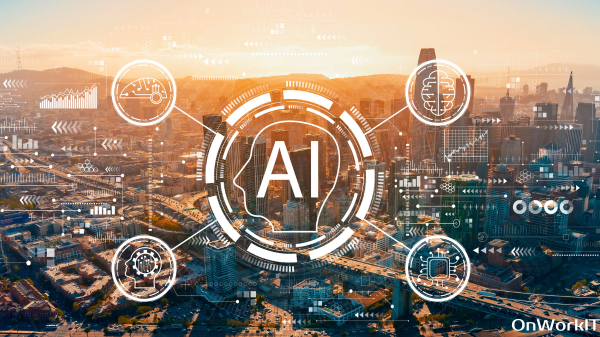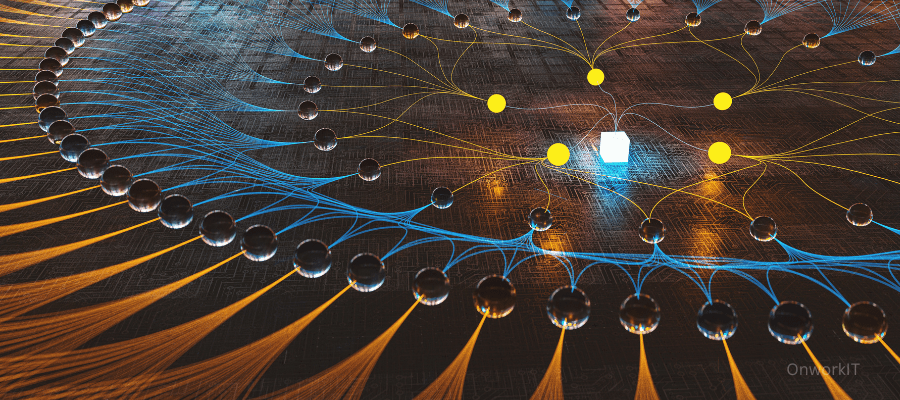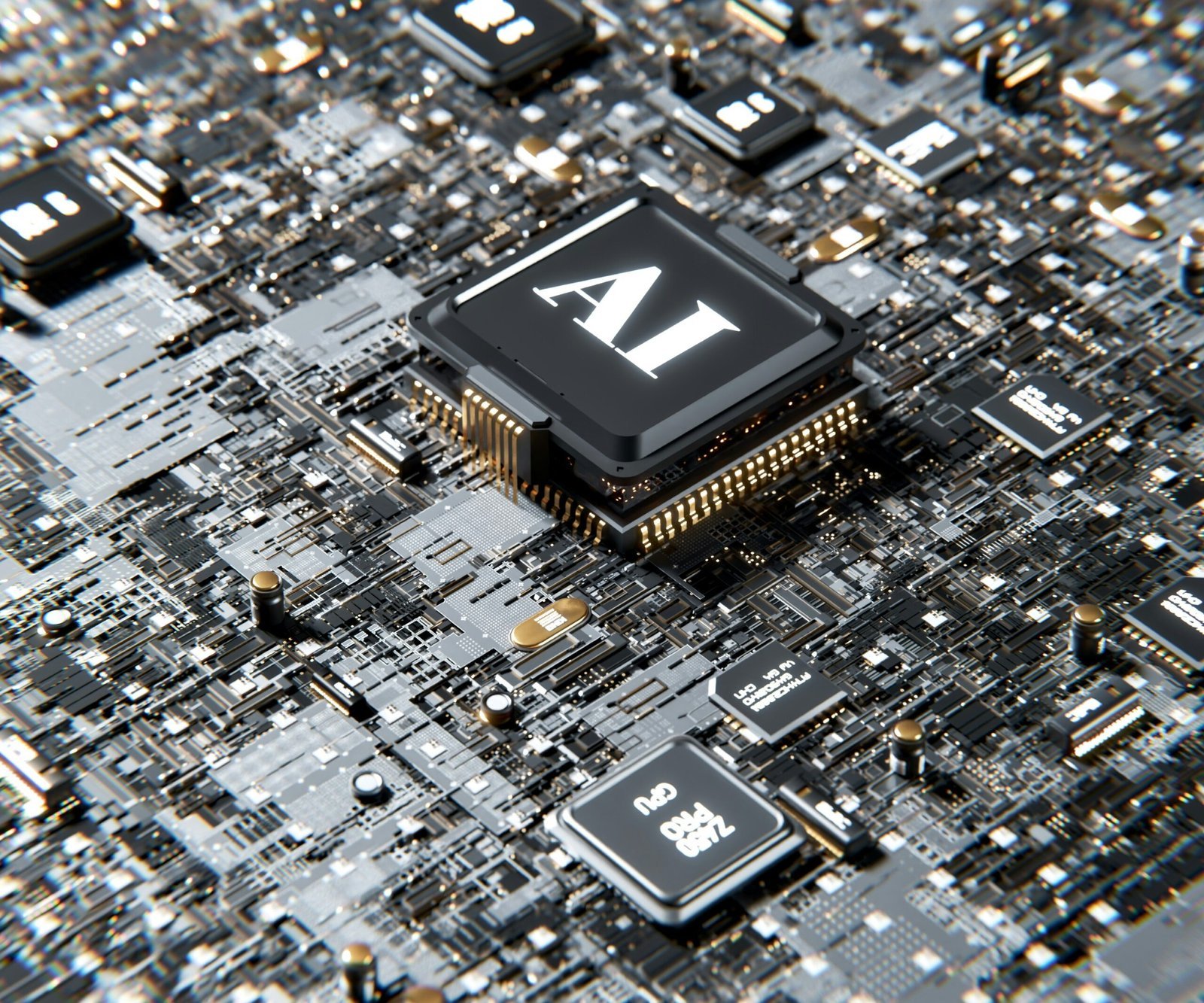Introduction to Quantum AI
A novel mix of artificial intelligence and quantum computing technologies, quantum artificial intelligence is By improving the capability of artificial intelligence systems by means of quantum mechanical ideas, this innovative field provides heretofore unheard-of speed and efficiency. By leveraging quantum computing to handle complicated tasks now beyond the grasp of traditional computers, artificial intelligence (AI) has the potential to totally change various sectors. Still, the underlying problem here is: what does quantum artificial intelligence mean in the contemporary environment?
Quantum Computing

The core of quantum artificial intelligence is quantum computing, which uses the peculiar qualities of quantum bits, or qubits, to do tasks substantially quicker than normal binary-based computers. Whereas traditional bits may only exist in states of 0 or 1, qubits—which may exist in superpositions of states—allow for the concurrent handling of huge amounts of data. Thanks to quantum parallelism, which opens the way for breakthroughs in data processing, machine learning, and decision-making, complicated artificial intelligence programs may now be implemented at astonishingly high rates.
One can barely emphasize the importance of quantum artificial intelligence. More powerful processing skills is becoming more wanted for as we create vast volumes of data. Through quicker and more efficient solutions, quantum artificial intelligence has the potential to change areas including hacking, medical research, and financial modeling. For financial modeling and investment portfolio optimization, quantum artificial intelligence, for instance, has the potential to more properly analyze and predict market moves, hence boosting risk management and investing methods.
Moreover, by adopting new quantum encryption technologies, quantum artificial intelligence may boost data security. Quantum encryption ensures data security by way of better protection against invasions employing quantum physics ideas. Maintaining the security of digital communication networks and protecting personal data rests on encryption immune to quantum flaws.
Fundamentally, quantum artificial intelligence reflects a paradigm transformation in our approach to and answer for hard problems. We have to keep studying and growing in this exciting field as its potential to radically upset many other sectors assures that we will fully accomplish the promise of quantum computing and increase artificial intelligence.
The Intersection of Quantum Computing and AI
A important development in computer science is the confluence of artificial intelligence (AI) with quantum computing. Different from ordinary computers in that it can run at speeds quicker, quantum computing has the potential to radically change artificial intelligence systems. These two new technologies utilized together have the potential to greatly increase speed and efficiency as well as provide heretofore unheard-of choices for a wide range of uses.
Quantum superposition—which permits quantum bits, or qubits, exist in numerous states at once—is the fundamental idea behind this junction. Quantum computers’ ability to organize a huge number of options at once allows artificial intelligence algorithms to run significantly quicker. Quantum computing, for example, allows optimization tasks that would take years for ordinary computers to answer to be finished in seconds, therefore expanding the bounds of artificial intelligence (AI).
Quantum Entanglement
Moreover, the particular features of quantum computing—such as quantum tunneling and entanglement—offer machine learning models still another degree of processing power. These traits can minimize training times and improve predictive analytics accuracy, hence allowing artificial intelligence systems to learn and change quicker and more efficiently. From risk analysis and financial models to molecular interactions and drug development, the blend of artificial intelligence with quantum computation opens up new options for the study of hard problems.
Quantum Simulation
Among the most interesting applications of a junction are quantum simulations. Using quantum computing, artificial intelligence programs can exactly describe molecular interactions, hence allowing the fabrication of quantum batteries for energy storage and the finding of new materials. Moreover, by providing strong defenses against intrusions and thereby boosting data confidentiality, quantum artificial intelligence’s better data processing power can help real-time danger discovery in cybersecurity.
Growing study and development in quantum computing will assist to better the scalability and resource management of artificial intelligence systems, hence opening the door for more complicated and powerful AI applications. Combining artificial intelligence with quantum processing promises to herald in a new age while also boosting technical growth and changing various sectors.
Applications of Quantum AI
Because of its utilization of the specific powers of quantum processing, quantum artificial intelligence has the potential to completely change many different areas. One example where this is very common is financial models. Even if they are strong, conventional artificial intelligence algorithms are frequently restricted by classical computer limits, especially with relation to big and complicated datasets. By handling similar datasets 10 times quicker, quantum artificial intelligence might permit more correct and speedy financial forecasts.
In the field of investment portfolio optimization, quantum artificial intelligence can simultaneously examine various investment scenarios and give real-time insights improving decision-making. Managing multiple stocks and high-frequency trading—which demand for speedy assessment and rebalancing—benefits greatly from this understanding.
Quantum AI & Risk Analysis
Risk analysis is yet another area where quantum artificial intelligence has significant promise. It more successfully discovers likely dangers and abnormalities inside financial systems by employing powerful quantum algorithms. Better risk management tactics result from this; unplanned financial catastrophes are less likely.
In the pharmaceutical business too, quantum artificial intelligence offers huge potential benefits. Through quantum level simulation of chemical reactions, it speeds drug creation. This minimizes the time and expenses needed in bringing new pharmaceuticals to the market. The chance of quantum artificial intelligence to properly reproduce these interactions helps to improve our understanding of diseases and the creation of viable therapies.
Quantum AI & Material Science
In material study, quantum artificial intelligence also helps in the quest for innovative materials with desirable features. By modeling atomic structures and interactions, it helps researchers to predict how materials will respond in diverse situations, hence sparking creativity in sectors including quantum batteries and energy storage.
All things considered, applying quantum artificial intelligence in various fields not only improves speed and efficiency but also offers new paths for creativity and problem-solving, so acting as a key tool for next improvements.
When it comes to meeting difficult challenges, quantum artificial intelligence marks a paradigm change with powers much beyond those of ordinary computers. Although they are sturdy, conventional computers typically find it difficult to perform complicated jobs needing a lot of time and working powers. Nonetheless, quantum computing uses principles from quantum physics to process data in substantially new ways, hence allowing the solving of heretofore intractable tasks.
Quantum simulation skills of quantum artificial intelligence is among its most important benefits. With their remarkable accuracy in modeling molecular interactions, these models could help to understand major issues in drug creation and material study. By studying the quantum behaviors of molecules using quantum simulations, scientists can discover creative materials with specific qualities and maybe new medicines.
Energy Storage solution
Not just for energy storage technologies but also for drug research, quantum artificial intelligence shows potential. Utilizing quantum mechanical principles, quantum batteries have the power to fundamentally change energy storage and usage. Given the rising need for alternative energy, this study is extremely important. Longer-lasting and more efficient batteries emerging from the chance for quantum artificial intelligence to improve energy storage devices would have a profound effect on daily life and business.
Financial modeling and portfolio optimization of investments may be greatly improved by quantum artificial intelligence. Conventional methods fail to predict market moves amid the huge volume and complexity of financial data. On the other hand, quantum artificial intelligence (AI) can handle and evaluate huge amounts of heretofore unheard-of speed and efficiency, hence allowing more precise risk assessment and improved investment plans.
By use of quantum encryption methods, quantum artificial intelligence improves data security within the world of cybersecurity. These solutions ensure data privacy while also offer effective hacking defenses. Using real-time danger monitoring, quantum artificial intelligence trumps standard systems in finding and mitigating security flaws.
Quantum artificial intelligence holds important and revolutionary possibilities for solving hard challenges generally. From useful uses in a range of areas to scientific findings, the combination of artificial intelligence with quantum computation offers new routes for creation and technological growth.
Enhanced Data Security with Quantum AI
Quantum artificial intelligence (AI) may radically disrupt the data security business by applying powerful quantum encryption and quantum-resistant cryptography. These technologies give heretofore unheard-of degrees of data privacy, hence protecting private information from unwanted access. Unlike traditional encryption systems, quantum encryption offers tremendous hard for criminals to access or decode encrypted data quietly by applying principles from quantum physics. Protecting private information in many different areas, including national security, healthcare, and finance, demands quantum-level protection.
Threat Detection
Among the most exciting uses of quantum artificial intelligence in defense is real-time threat identification. Classical artificial intelligence systems are often unable to keep up with the number and complexity of current cyberthreats even when they work well. But quantum artificial intelligence may discover such risks and faults more quickly and precisely since it can watch and analyze massive amounts of data at heretofore unheard-of rates. Preventing breaches before they cause major damage and giving businesses a better defense system relies on early finding of this sort.
Quantum-resistant cryptography
Furthermore growing in the important field of quantum-resistant cryptography is quantum artificial intelligence. The growth of quantum computing puts present encryption systems under danger; many of them might become useless. Nevertheless, as quantum-resistant encryption is meant to resist attacks from both conventional and quantum computers, it offers a future-proof approach to data security. Maintaining data private over the long run and beating the constantly altering cyberthreat environment depends on this form of encryption.
Through improved resource management and system scalability, quantum artificial intelligence not only helps hacking but also other fields. By way of efficient utilization of computer resources, quantum artificial intelligence ensures that security measures may be successfully scaled to meet the requirements of big and sophisticated networks. Companies who must safeguard a lot of data across numerous platforms especially count on this ability.
Using quantum artificial intelligence into data security systems gives a new method of protecting private information generally. Modern solutions including quantum encryption, real-time threat detection, and quantum-resistant cryptography provide Quantum Artificial Intelligence (AI) a consistent and scalable answer to the continually growing safety challenges.
Challenges in Developing Quantum AI
Development of Quantum AI, which merges artificial intelligence with quantum processing, faces various tough difficulties. Developing tools is among the toughest tasks there is. Unlike ordinary computers, quantum ones rely on newly found technology including superconducting circuits and ion traps. Extremely complicated systems are needed to fully understand the potential of quantum bits, usually known as qubits, the basic building pieces of quantum information. Creating lasting and scalable quantum technology is still a pricey and tough job.
Correction of mistakes adds a great extra load. Operational faults and external interferences make quantum systems naturally error-prone. Quantum mistake repair solutions require extra qubits and complicated methods to protect quantum information from these imperfections. Developing quantum artificial intelligence (AI) rests on beating these error-prone traits; hence, reliability in quantum computing is vital.
Noise reduction
Still another important topic is pollution control. Quantum methods are extremely sensitive to outside disturbances, or “noise,” so even tiny changes can have a major effect and generate erroneous results. Advanced noise reduction methods describe the integrity of quantum processes, thus they demand great changes in science and engineering.
Scalability of quantum systems is yet another key topic. Because current quantum computers employ few qubits, performing demanding tasks is tough. To run millions or even thousands of qubits, realistic implementations need for scaling up quantum systems; nonetheless, this offers substantial theoretical and practical hurdles.
Resource management
Overcoming these hurdles asks for better resource management. Resources like qubits and processing powers have to be properly spread and controlled if we are to improve quantum artificial intelligence systems. Using effective resource management solutions helps to some extent handle some of the difficulties linked to scaling, mistake repair, noise reduction, and hardware development.
Overcoming these problems is continually improved by researchers and technologists. More trustworthy and scalable quantum artificial intelligence systems are increasingly being made possible by changes in hardware technologies, noise reduction measures, and error correction methods. Notwithstanding its limitations, quantum artificial intelligence (AI) offers huge promise for growth in many other fields, including financial modeling, medical research, and cybersecurity, including financial modeling.
Future Prospects of Quantum AI
Looking ahead, the integration of artificial intelligence and quantum computing—also known as “Quantum AI”—has the potential to change many different businesses. One of the most important possibilities is artificial general intelligence (AGI) progressing. Unlike limited artificial intelligence (which is better suited for certain activities), artificial general intelligence (AGI) would be able to perform any intellectual activity a person could. Perhaps the answer to unlocking AGI is quantum artificial intelligence as it promises to greatly boost the speed and effectiveness of program learning.
The natural benefits of quantum computing in handling complicated tasks at previously unheard-of rates could cause a revolution in artificial intelligence systems. This would hasten the making of artificial general intelligence and improve present artificial intelligence usage. In financial modeling, for instance, quantum artificial intelligence (AI) may increase investment portfolio optimization and more exactly perform risk evaluations, therefore increasing financial sector decision-making. Likewise, it may more precisely foresee molecular interactions in drug creation, hence allowing the invention of new medications and therapies.
Far-reaching repercussions of quantum artificial intelligence for society exist. Quantum encryption aids to improve data security in one such area. Quantum artificial intelligence could inspire the invention of quantum-resistant encryption, hence ensuring data protection against internet threats. This is especially important now as cybersecurity worries are more advanced. Real-time threat detection allowed by quantum computers can offer key infrastructure and private data effective protection.
Quantum Ai & Hardware Development
Moreover, advancements in hardware, noise reduction, and error correction will influence the scalability of Quantum AI. Good resource management will ensure that quantum systems can handle large tasks, hence allowing its implementation in daily applications. From expanding material research through quantum models to increasing energy storage possibilities employing quantum batteries, quantum artificial intelligence (AI) offers nearly endless uses.
In sum, quantum artificial intelligence offers huge and interesting future potential that may radically revolutionize business and society. As research and development grows, the application of artificial intelligence (AI) and other revolutionary breakthroughs becomes more useful.
Conclusion
Quantum artificial intelligence basically signifies a big revolution in the area of artificial intelligence. By leveraging quantum computing ideas, it promises to greatly expand the capability of artificial intelligence programs by allowing speed and efficiency heretofore impossible with traditional computer technologies. In material study, medical development, and financial modeling as well as other hard fields, quantum simulations offer answers. Integration of artificial intelligence with quantum computing aids to make this possible.
The possibility of quantum artificial intelligence to change data security is among its most startling qualities. Technological breakthroughs in quantum encryption and quantum-resistant cryptography provide the ability to greatly boost data protection and confuse attackers. Protecting private data in a world getting more and more digital will call for real-time danger detection and better data security.
Good resource management will guarantee that these advanced solutions are regularly and efficiently applied over a broad range of fields. Moreover, the development of specialized quantum technology as well as advances in error correction and noise reduction greatly affect the scalability and pragmatic usage of Quantum AI.
Looking forward, quantum artificial intelligence (AI) will surely be the key to getting heretofore unheard-of degrees of performance and creativity. From financial portfolio optimization via greater risk analysis to the creation of new energy storage technologies like quantum batteries, the conceivable uses are diverse and revolutionary. Those who desire to totally employ quantum artificial intelligence will have to keep up with the most recent breakthroughs in the area while long-term research and development occur.
What is Quantum AI in the new World?
The rise of quantum computing suggests a change in artificial intelligence. By employing quantum computing ideas, it promises to greatly expand the capability of AI programs by allowing speed and efficiency heretofore impossible with traditional computer technology. In material study, medical development, and financial modeling as well as other hard fields, quantum simulations offer answers. Integration of artificial intelligence with quantum computing makes this possible.











One thought on “What is Quantum AI in a New world?”